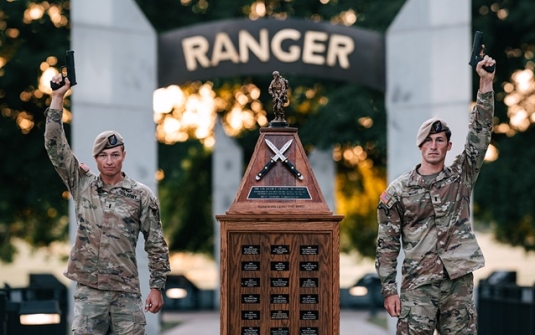Join us as we explore the remarkable career of AMB Karl Eikenberry ’73, from his formative years in Goldsboro, North Carolina to his distinguished military and diplomatic service.
Eikenberry shares how a pivotal encounter with MAJ Tom Griffin, along with the unwavering support of his parents and a dedicated congressman, led him to the United States Military Academy. At West Point, he distinguished himself as a dedicated cadet, excelling in economics and Mandarin Chinese, which played a crucial role in shaping his understanding of international affairs.
Karl Eikenberry is the former U.S. Ambassador to Afghanistan and a retired Lieutenant General of the U.S. Army. He is a faculty member at Schwarzman College, Tsinghua University, and a Non-Resident Fellow at the Liechtenstein Institute on Self-Determination at Princeton University. AMB Eikenberry also serves on the board of Asia Society Northern California. Previously, he was the Director of the U.S.-Asia Security Initiative at the Walter H. Shorenstein Asia-Pacific Research Center at Stanford University and an affiliate with several of Stanford’s research centers. His military career spanned thirty-five years, during which he held various command and staff positions in the U.S., Hawaii, Korea, Italy, and Afghanistan.
Eikenberry’s early military career unfolded during a challenging time for the U.S. Army, transitioning from the Vietnam War era to a volunteer force. He discusses his leadership experiences on the Korean Peninsula and with the 1st Ranger Battalion, highlighting the lessons learned about maintaining high standards and effective leadership. The conversation then shifts to his extensive involvement with China, detailing his early visits and role as an assistant army attaché in Beijing, and emphasizing the evolving dynamics between the U.S. and China.
Finally, we discuss Eikenberry’s tenure as the Commander of Combined Forces in Afghanistan and his subsequent appointment as the U.S. Ambassador to Afghanistan. He reflects on the complexities of leading coalition forces and the transition from military to diplomatic roles. The episode also covers his academic pursuits, contributions to national security through think tanks, and the invaluable role of networking and continuous learning. Eikenberry concludes by sharing his admiration for the young leaders at the U.S. Military Academy, expressing hope for the future through their dedication and enthusiasm.
**This episode does not imply Federal endorsement.
Episode Timestamps
00:27 AMB Eikenberry’s Journey to West Point
03:29 Life as a Cadet
08:37 Formative Military Experiences
13:56 US-China Relations
18:04 Command in Afghanistan
22:12 Transition to Diplomacy
31:15 Academic Contributions and Networking
Links
“If you’re using your time at the academy well, you’re developing a network of resources, analysts, and people who have gone back and forth from the world of policy to the academy itself. If you try to keep that network alive, it’s really going to be a good investment for you professionally. When I look back at my life, there were many times where I was in a very difficult situation or had a very difficult problem, and I reached out by phone, email ,or texting to a professor that I knew several years ago, but had stayed in touch with, and they were able to give me the best advice.”
— AMB Karl Eikenberry ’73











